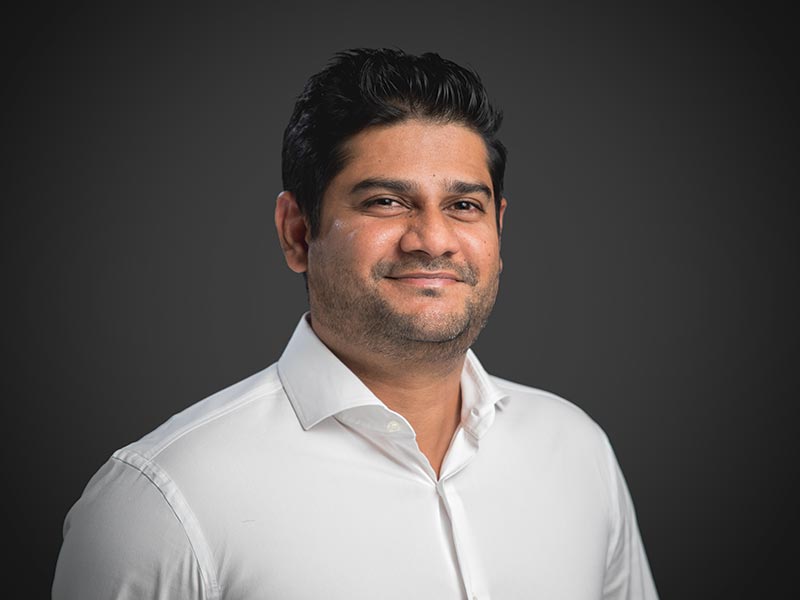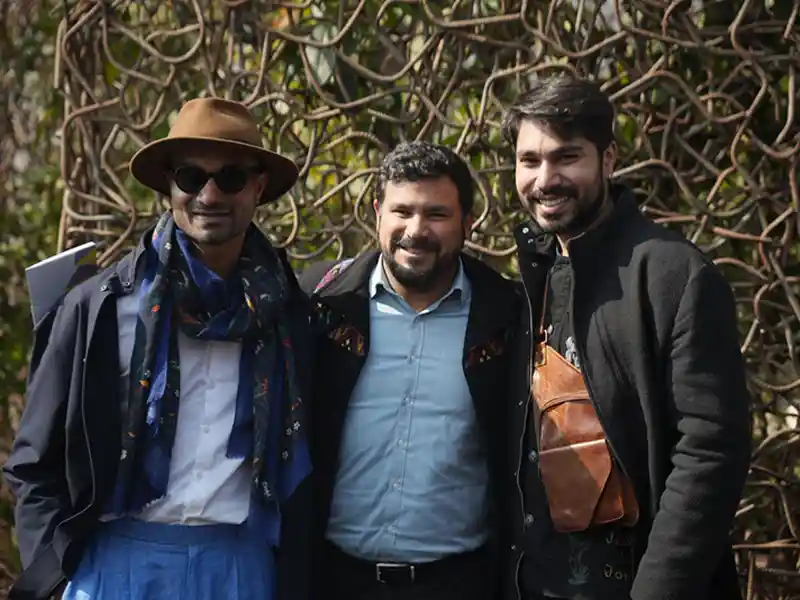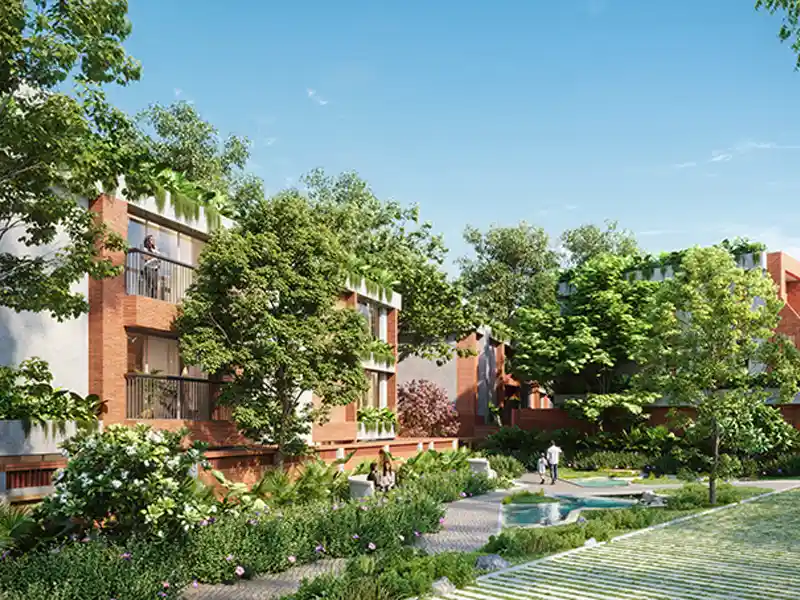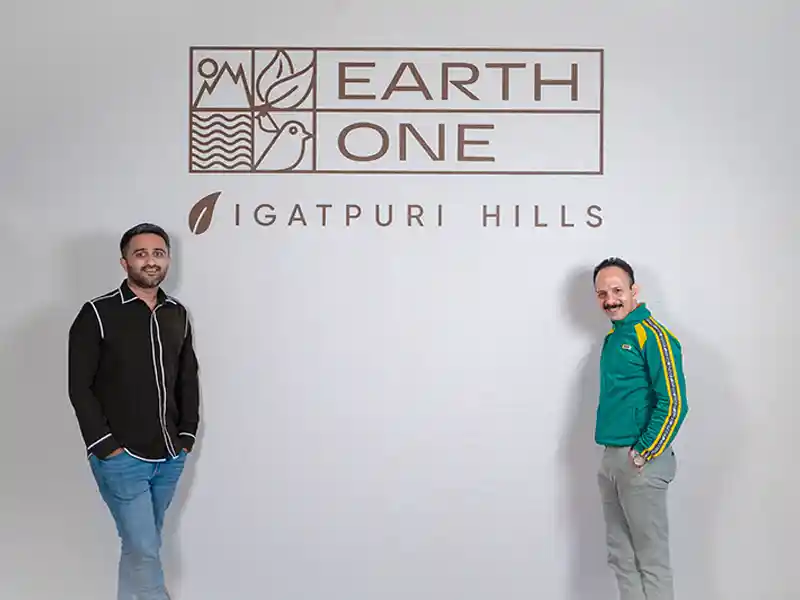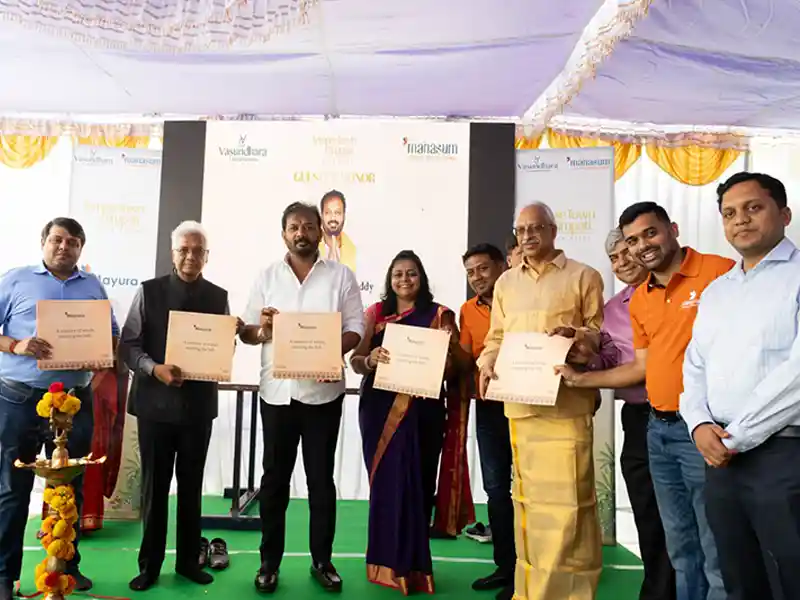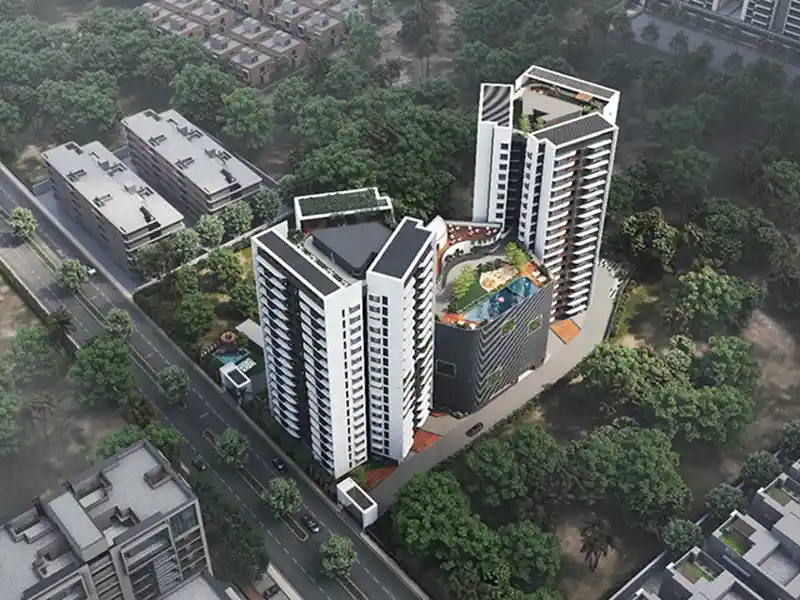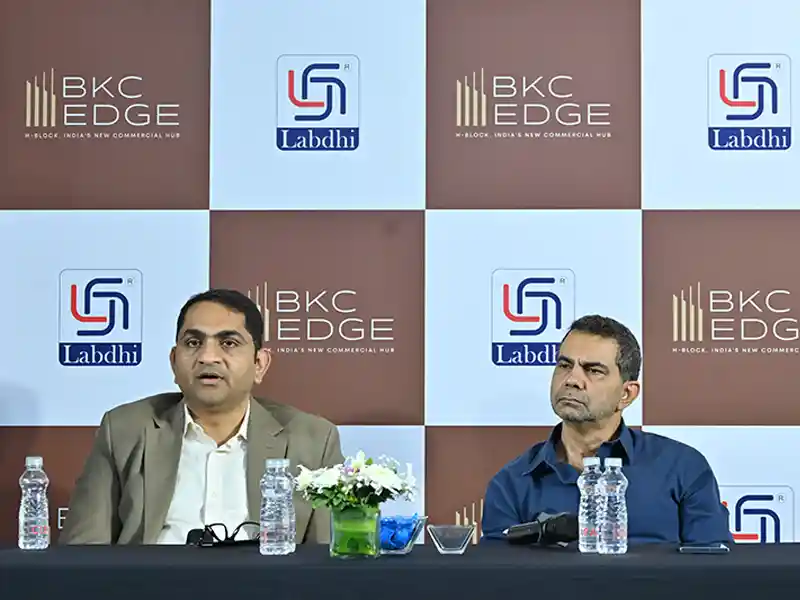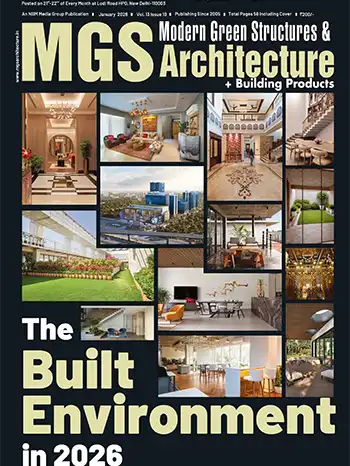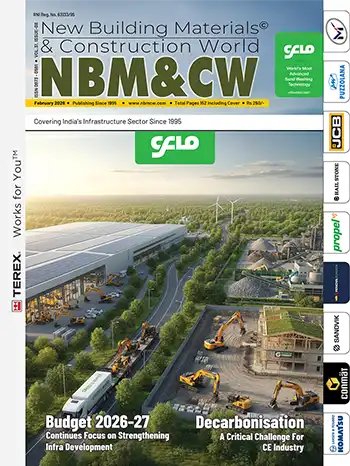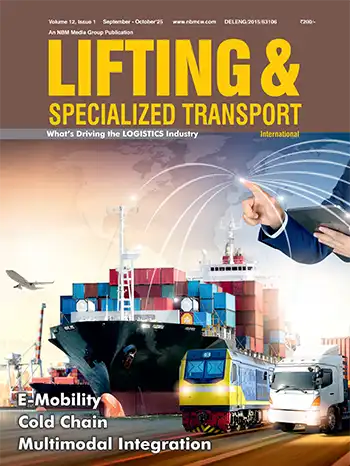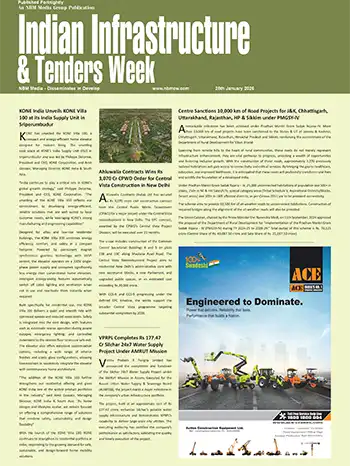Unsustainable practices such as rapid urbanisation, rising levels of consumption, and the degradation of lands, have led to a rampant increase in environmental problems like soil erosion, ozone layer depletion, and rise in levels of air pollution. Recent instances of forest fires in Australia and California have showed how our illicit practices are causing harm to millions of habitats around the world and are restricting our green cover. It is the result of these practices that a series of zoonotic diseases like SARS, MERS, Ebola, bird flu or Covid-19 have now been unleashed into our eco-system.
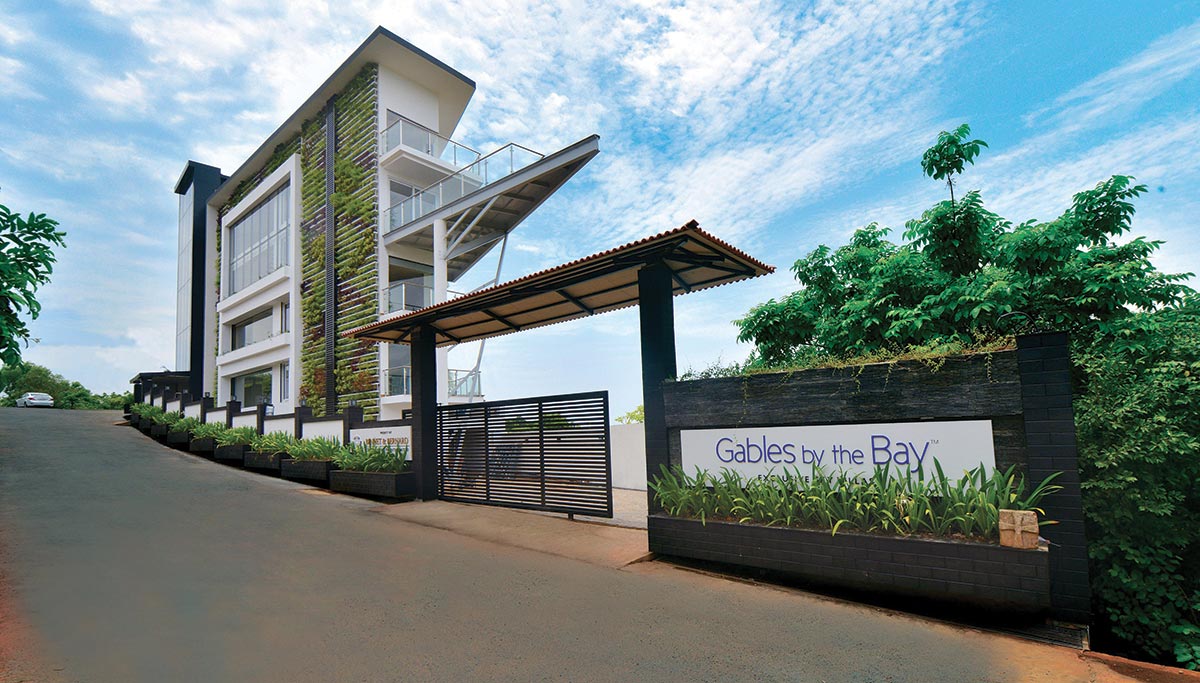
As we start thinking of living in the post-COVID world, there are now diverse perspectives on how our cities can respond better to current and future crises. Once the current pandemic is over, life in cities as we know it will change and the changes that will come around will be long-term. A majority of the decision making in the construction of new cities will now depend on many factors, including how governments and societies respond to the coronavirus aftermath. Therefore, building a course towards more sustainable lifestyles has now become imperative for us. It is the impact of the ongoing pandemic which has made it certain that we change our approach to work and lifestyle, wherein we undertake long term initiatives for environment conservation and focus towards creating communities that are better, stronger and provide eco-friendlier solutions for the future.
The vision for the future of development and environmental conservation will require a radical transformation of our current infrastructure systems. Conservation of energy and water, proper waste management and sanitation should now be the basis of future growth patterns.
In the recent past, planned design and development of our urban landscapes have presented a solution to address the current need gap for the adoption of sustainable living and has showcased its ability to foresee and accommodate the future requirements of cities and their urban dwellers. Investments in planned urbanization have been found to not only improve the quality of life of the citizens but can also be a huge contributor to the environment.
It is important now to customize relevant technologies in homes that would incorporate modern habitat design with traditional practices. While we have always put hygiene practices at the forefront, we believe that this time of introspection will give us the fuel and motivation to show the next generation what more is possible
Lindsay Bernard Rodrigues, Co-Owner & Director, Bennet & Bernard Group
Today, leading Indian realtors have transitioned towards building smart and self-sustaining projects which comprise a wish list of infrastructure and services which cater to the aspirations and needs of today’s customer. These rise in sustainable projects have ensured that developers make structural modifications in their new builds such as re-distribution of airflow and oxygen supply and implanting elements for quick absorption of carbon dioxide in their properties, which will not only enhance hygiene and health of the customers, but will also reduce the overall carbon footprint of the property.
Moving beyond the traditional practices of environment conservation like solar power for lighting up of common areas, rainwater harvesting, recycling and reusing water for flushing or landscapes, wet and dry waste segregation, are measures that will ensure that traditional practices co-exist with modern technologies.
With the inclusion of the eco-village practices such as provision of energy-positive homes, doorstep high-yield organic food production, use of mixed renewable energy and storage, waste recycling and making use of advanced agricultural technologies that require less land, like aquaponics, hydroponics and vertical farms, these infrastructures are now making sure that a balanced community is the central theme of all the realty projects. Such projects have the capability to not only enable people to live, work, and enjoy a vibrant community life, but can also promote a feeling of self-reliance among its residents in an ecologically aware and sensitive way.
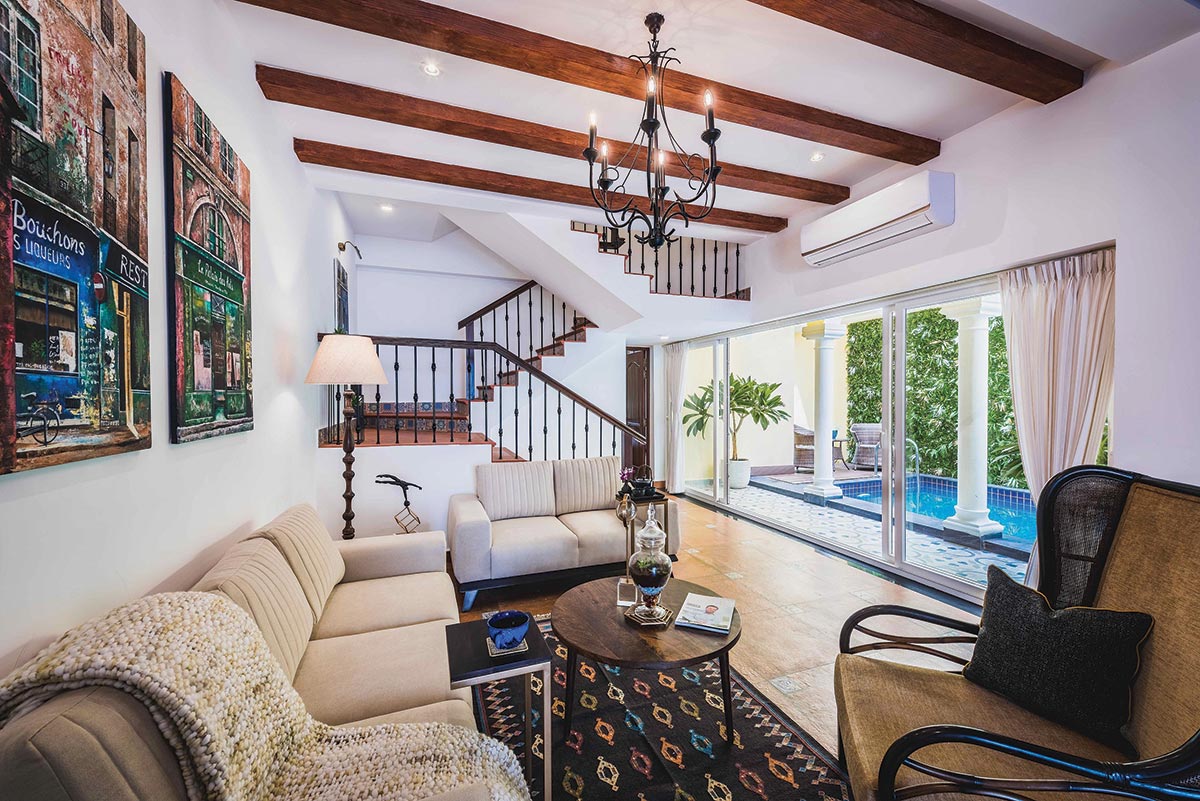
Even though the development of self-sustaining communities is still a very niche concept in India, however, the industry is expected to attract interest from both the investors and the buyers. India currently ranks second, just after the United States, in terms of the number of green technology projects and built-up areas. Post the Covid-19 crisis, this holistic construction approach is here to stay as a sector that promises incredible growth for many years to come since it encourages interdependence and shared responsibility among stakeholders in building the value chain. However, what is certain is that we will witness changes that will be for the long term, and, hopefully, use lessons from this crisis to rebuild and create communities that are better, stronger and provide eco-friendlier solutions for the future.
At Bennet & Bernard, we have been following sustainable practices for over a decade, and are now further enhancing our design initiatives, considering lifestyle changes in consumer behavioural patterns. We are incorporating changes in the layout and design and making structural modifications like re-distribution of airflow and oxygen supply, as well as implanting elements for quick absorption of carbon dioxide to enhance hygiene and health. The design flow includes selection of light, placement and paint schemes to add to the existing eco-friendly technology approach at our properties. It is now critical to think out-of-the box.
Our enhanced designs will also incorporate aspects like versatile workspaces, community vegetation, contactless delivery, and self-sustenance. Other traditional healthy practices like keeping footwear outside, sanitizing hands and feet before entering homes will co-exist with these initiatives.
We are also ensuring that working from home is ergonomically most efficient. We will be creating an exclusive space which will impart an office-like feel. The designs are being executed to help maintain privacy and offer a noise-free ambience in certain sections of the homes to ensure minimal distractions. Usage of copper will be a regular feature and the company is working in multiple ways to enhance the wellness of our clientele.
Being able to build sustainable homes is a responsibility that respects the environment around us. We are introducing hydroponic farms in all our new projects. Sustainable farming and the desire to eat fresh, organic, zero-carbon food is the best way to provide healthy and nutrient-rich food. Hydroponics and other soil-less farming techniques can also help us take our agriculture and farming industry to the next level as climate change poses a major challenge to food production. In fact, Hydroponic gardening is fast becoming a popular choice for many growers around the world due to its more sustainable approach to resource usage.

